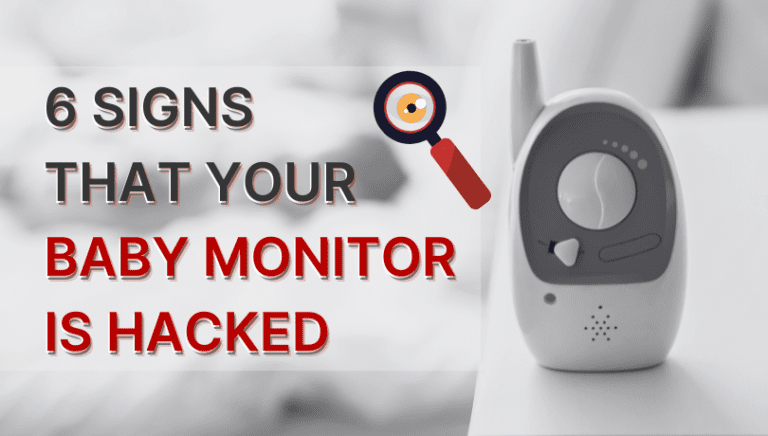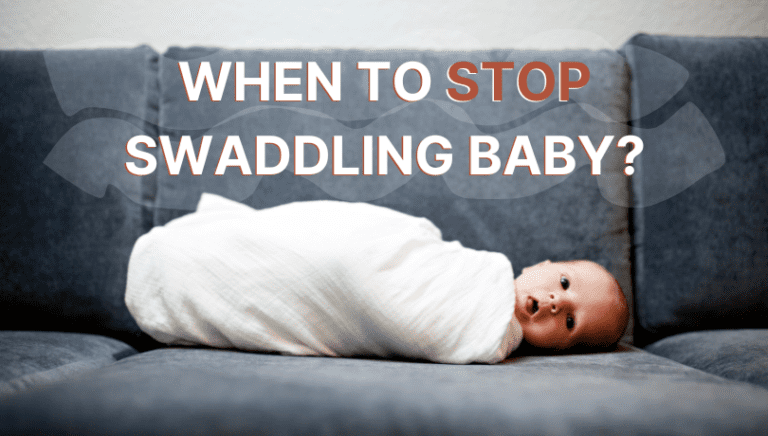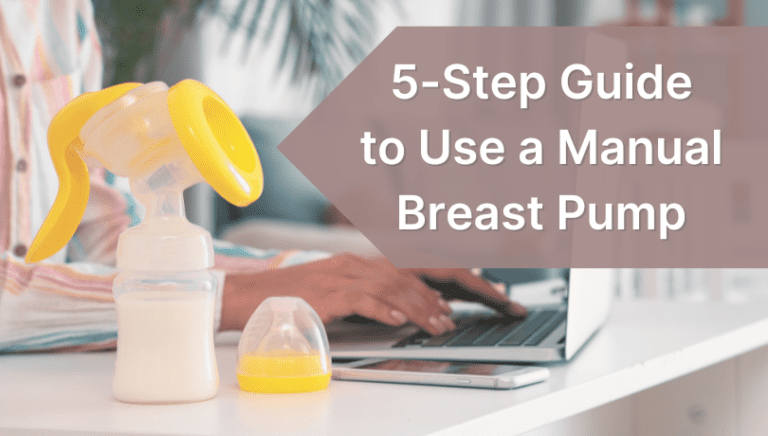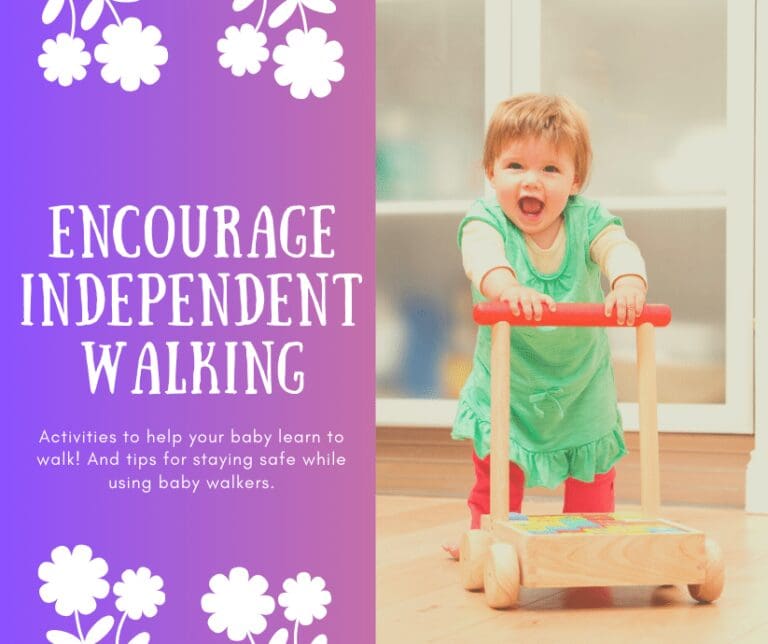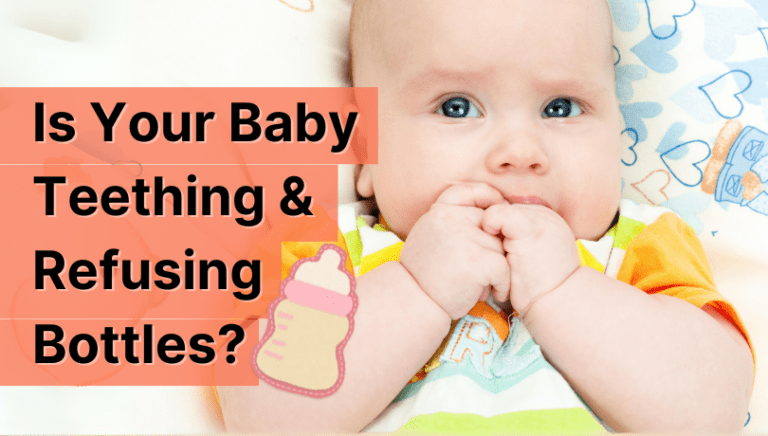At What Age Can I Bed Share with My Baby?
You may have seen me mention in other blogs that bed-sharing with a newborn is a huge no. Bed-sharing can increase the chances of SIDS and accidental suffocation for newborns. As a mother myself, I cannot imagine putting my newborn through such unnecessary risks!
So, the next natural question is: when and at what age can I bed share with my baby safely? Most people would say – after they become toddlers (1 year or older).
But, even though it’s “safer” to bed-share with a toddler who is one year or older, I would not recommend it. I’ll explain why.
Table of Contents
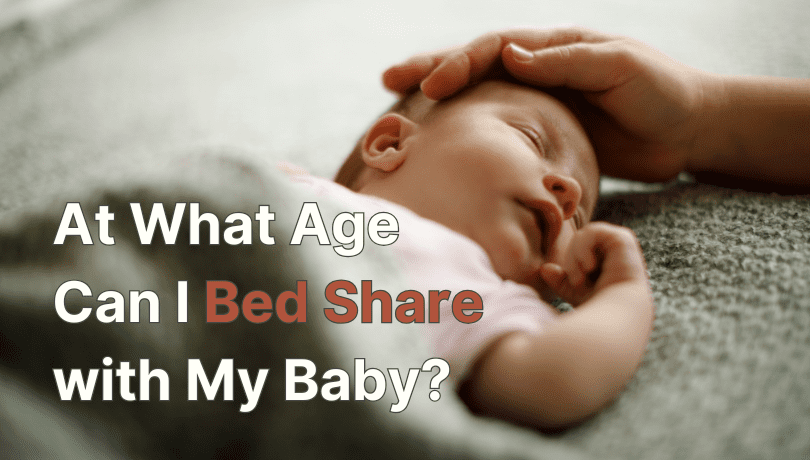
Why I Don’t Prefer Bed Sharing At Any Age
We know that newborns need a safe sleeping environment, preferably in a separate crib or bassinet with a firm mattress as they lay on their backs. This reduces SIDS and other similar risks.
And sure, these dangers reduce as your child reaches milestones, rolls over, and can control their body’s motions. But that doesn’t change the fact that those same risks are still a real possibility.
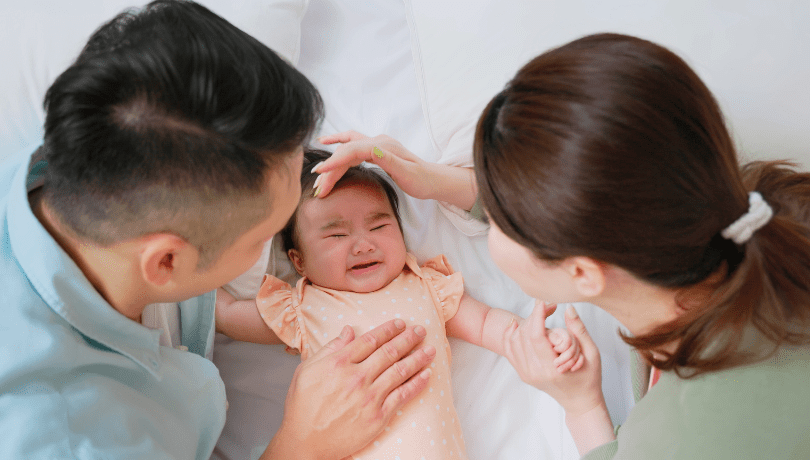
Here are some disadvantages of bed-sharing to know:
1. Injuries and Worse
- A toddler can still get trapped between soft bedding and the cot or headboards, causing entrapment. When they are stuck in this position for a while, it can cause suffocation.
- You as a parent could roll over them in your state of deep sleep and cause injuries that could have been avoided!
2. Over-Attachment
If you make bed-sharing a habit, your toddler might find it tough and scary to sleep on their own. I had a tough time with that even without bed-sharing!
- Bed sharing makes toddlers associate sleep time as an activity to always share with parents.
- If this goes on, they may want your company even at nap time during the day. It can also make them fussy and angry when you’re not around.
3. Anxiety for the Parents

As parents, we’ve all had those sleepless nights soothing our night-owl newborns when they get startled or simply need comfort. It is even more difficult if your baby has reflux or colic, and I know how draining that can be. And you hope that’ll change as they get older.
- But bed-sharing with your toddler can cause those nighttime disturbances to continue, even for harmless little things. I remember waking up anxious and alert whenever my baby woke up.
- If this continues to build, you might find that you become overly anxious even during the day, craving uninterrupted rest while coddling your little one night and day.
Kelleigh’s Advice:
Never think of bed-sharing (even for a short nap) if:
- You or your partner smoke or have consumed alcohol
- There’s very little space for your baby to sleep
- You’re taking prescribed drugs or medication
- You are overly tired, anxious, or stressed
Possible Benefits of Bed-Sharing
Even though I, personally, dislike bed-sharing, I know of a few parents who prefer it for several reasons:
- Bed-sharing helps with easier nighttime feeds for breastfeeding mothers.
- It’s also hassle-free to soothe fussy or anxious babies when they are near you.
- This could also help you bond with your baby with more skin-to-skin contact (useful if your partner or caregiver wants to take over for feeding or sleeping duties).
But know that the risks outweigh the advantages. That’s why I believe it’s better to consider suitable alternatives like room-sharing. This will help you reap the same benefits as bed-sharing, minus its dangers.
Room-Sharing: The Better Alternative

- One of the most common ways to room-share is by using a bassinet. Today, bassinets come in different models and most of them are portable and compact enough to fit in small spaces.
- You can also consider bedside bassinets to keep your little one in proximity while still making sure they are comfortable and safe.
- If you have more space, you can also consider cribs. Place your baby on their back on a firm and comfy mattress and keep an eye on them when needed.
At home, Terry and I bought a bedside bassinet for my daughter, Fiona, because she had trouble sleeping at night, and we believed it would be better to keep her close to us. And it worked out in time!
Recommended Reading: Co-Sleeping vs Bed-Sharing
Tips to Room-Share With Your Little One
- Baby-Proofing: Even if your newborn can’t move around, their crib or bassinet mustn’t have dangerous dangling cords, strings, or toys that can be safety hazards. Keep an eye out for sharp edges or points that can poke your child!
- Within Reach: If you have a fussy baby, keep your crib or bassinet within arm’s reach to soothe them whenever they need comfort.
- Firm Mattress: This is non-negotiable, parents and caregivers! Please place your baby on their back and only on a firm mattress.
- No Soft Bedding: Remove all extra fluffy pillows, blankets, and similar items to reduce risks of suffocation and strangulation. Remember, bare is best!
- Prevent Overheating: Maintain an optimal room temperature no matter what, and avoid heavy clothes or swaddling that can make it too hot for them to get a good night’s rest.
- Smoke-Free Zone: Please help your baby sleep in a well-ventilated room and avoid smoking for their safety.
Bed-Sharing: A Last Resort
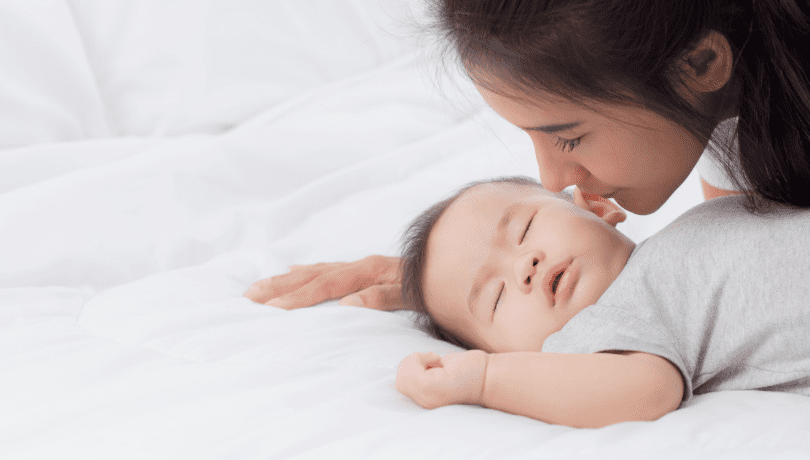
Dear parents, I can definitely understand that there may be situations when you cannot avoid bed-sharing. So, it’s also worth looking at how you can safely bed-share (again, just letting you know that bed-sharing is very risky even when you follow precautions).
Caution:
Your baby also needs to reach some milestones for safer bed-sharing:
- Rolling over (between 4 and 7 months of age)
- Good head and neck control (around 4 months or later)
- Ability to move their bodies on their own
So, please bear this in mind and stay vigilant.
Safe Ways to Bed Share
- Your mattress should be firm and not sag because only a firm mattress can prevent suffocation and SIDS.
- Place your baby only on their back, without any extra blankets or swaddles.
- Dress them in light clothing to avoid overheating.
- Keep them slightly away from the headboard or footboard to prevent entanglement.
- Never let your baby sleep alone on your adult bed. Please stay with them to supervise.
- Keep them away from dangling curtains or cords that can harm them.
- Please do not smoke, drink, or otherwise compromise your alertness and your baby’s safety, especially when you are bed-sharing with them.
Final Thoughts: At What Age Can I Bed Share With My Baby
You can bed share with your baby after they turn one year or older, but please know that it still comes with numerous dangers that you cannot control.
In that way, room-sharing is a much safer alternative, and bassinets are the best option if you have space constraints.
Just remember to place your little ones on a separate, firm mattress and on their backs for safe and happy sleep!

